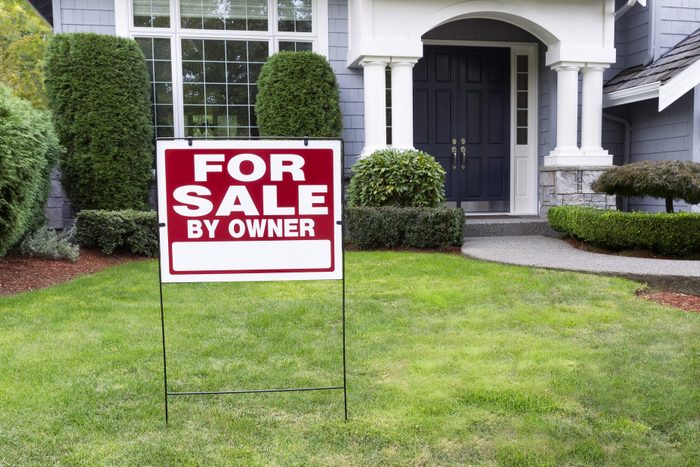What’s Causing Surging Home Sale Cancellation Rates

Potential homeowners across the country are being priced out of buying new homes.
Our editors and experts handpick every product we feature. We may earn a commission from your purchases.
The pandemic and surging inflation in the U.S. have drastically impacted the housing market. Building material costs have skyrocketed, nearly half a million construction jobs need to be filled to meet demand, and a new Redfin report detailed that new home sales are being cancelled at alarming rates.
In June, approximately 60,000 home-purchase agreements in the U.S, or 14.9%, fell through before being finalized, according to Redfin. That rate is up from 12.7% in May and 11.2% in June 2021.
Home cancellations are now at their highest rate since April 2020. Several factors contributed to this sudden spike.
On This Page
Why are Home Sales Being Cancelled?
Rising mortgage rates and a “slowdown in housing market competition” largely contributed to home contracts falling through, according to Taylor Marr, Redfin’s deputy chief economist.
Marr noted in Redfin’s report that in previous months, homebuyers waived home inspections and appraisals to entice sellers to accept their bid. With lower demand, that’s no longer happening. As a result, Marr says, homebuyers have the “flexibility to call the deal off if issues arise during the homebuying process.”
Higher loan interest rates are also pricing out many potential homebuyers. Homebuyers pre-approved for a certain amount when they went under contract now have to come up with more money, pushing that previously affordable house outside their budget.
In mid-June, 30-year fixed mortgage rates rose to 5.81%, up 2.5 points from the start of 2022 and the highest since November 2008. As explained by TheMortgageReports.com, the increase has major ramifications on mortgage payments.
Their example shows a 30-year fixed-rate loan at three percent on a $400,000 home with a 20 percent down payment, or $80,000, would cost roughly $1,350 per month for principal and interest. A six percent loan for that same home would cost $1,900 a month. That’s a difference of $550 a month.
Most Impacted Regions
While Las Vegas topped the list for U.S. metro areas with the highest cancellation rates, most cities ranking near the top are in the Southeast. Florida cities accounted for four of the top five and nine of the top twelve. Of the top 20 cities, 17 were in Florida, Louisiana, Georgia and Texas.
The cities with the highest cancelation rates, according to Redfin.
- Las Vegas 27.2%;
- Lakeland, FL 26.7%;
- Cape Coral, FL 25.7%;
- Port St. Lucie, FL 25.7%;
- Jacksonville, FL 25.3%;
- New Orleans 25.3%;
- Palm Bay, FL 24.9%;
- Orlando, FL 24.5%;
- Phoenix 24.5%;
- Crestview, FL 23.5%.
Homeowner’s insurance cancellations and rising rates also contributed to the issues in the Southeast. On June 29, FedNat Insurance Co. canceled 68,200 homeowners’ policies in Florida alone after years of the Sunshine State being battered by hurricanes, according to E&E News. Here’s how homeowners can combat climate risks.
FedNat’s cancellations are part of a larger issue for Southern homeowners with insurance rates and premiums roughly three times higher than the national average, according to Tampa Bay’s ABC News affiliate. Rising rates have made monthly mortgage payments unattainable for previously approved new homeowners.
Least Impacted Regions
Conversely, the Northeast had the lowest cancellation rates. Newark, New Jersey, and Rochester, New York, ranked first and second, respectively, with rates of 2.6% and 4.6%. Seven of the top 10 cities with the lowest cancellation rates are in New Jersey, New York or Pennsylvania.
The cities with the lowest cancelation rates, according to Redfin:
- Newark, N.J. 2.6%;
- Rochester, N.Y. 4.6%;
- Omaha, NE 5.3%;
- San Francisco 5.5%.
- Nassau County, N.Y. 5.5%;
- Montgomery County, PA 6.0%;
- Allentown, PA 6.4%;
- Buffalo, N.Y. 6.7%;
- New York City 6.8%;
- Raleigh, N.C. 7.0%.
Redfin’s complete rankings can be found here.


